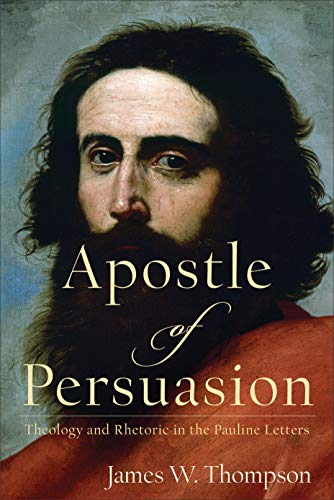Q. Throughout the book you regularly use the phrase prophetic rhetoric. I have assumed you mean that the content of Paul’s rhetorical expression is Jewish and OT prophetic in character, especially indebted to 2 Isaiah. And this is as opposed to the common content of rhetorical arguments in the Greco-Roman world. Am I tracking with you? And yet it is interesting that Paul is well aware of how to follow the proper form for artificial and inartificial proofs, and when he lines up such proofs for example in Gal. 3, from strongest to weakest, it is interesting that the appeal to Christian experience come first, then the appeal to the ultimate inartificial proof namely the Scriptural story of Abraham, and finally to a creative artificial proof. Paul is not just accidentally using universal rhetorical forms, he knows what he is doing, but clearly the content is thoroughly Jewish and Biblical. Would you agree?
A. Yes, you are tracking with me about Paul’s prophetic rhetoric. I would add that Paul considers himself in the line of prophets like Jeremiah or the “servant of the servant” of Isa. 49:6. Thus his rhetoric is prophetic insofar as he speaks for God. He does not simply quote ancient authorities, but considers himself the inspired interpreter. Again, the question is: To what extent is the use of artificial and inartificial intuitive or learned from rhetorical schools. Again, I insist that Paul knows rhetoric in the way that most educated people did.













